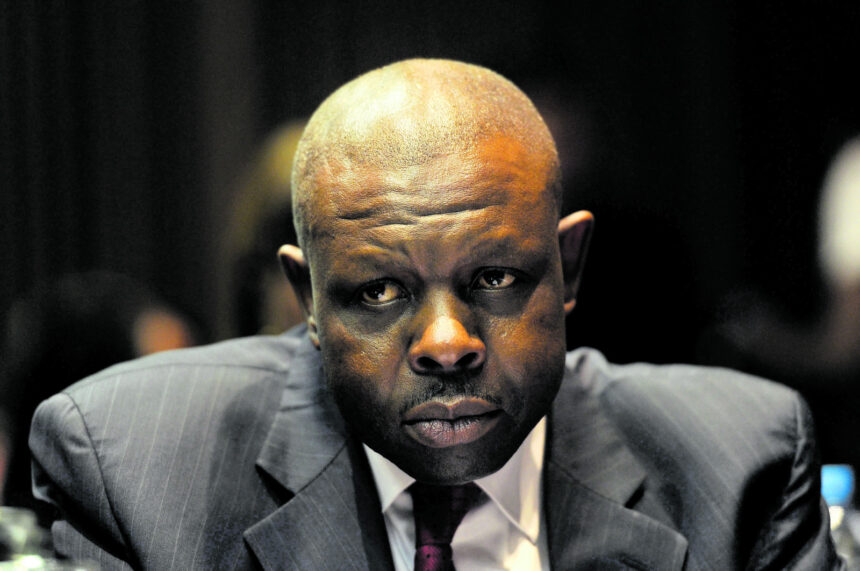He pointed out that the Constitution mandates the JSC to be comprised of 23 members, 13 of whom are designated by the National Assembly, six by the president, and four by the minister of justice. The Constitution also requires that these members be “fit and proper” persons, with relevant experience and expertise in the legal field.
“The idea that this court, or any court, should leave the matter of who is fit and proper to serve on the JSC to the National Assembly, irrespective of the qualifications, is simply wrong,” Budlender argued.
He highlighted Hlophe’s history of gross misconduct and his impeachment as clear evidence that he is not a fit and proper person to serve on the JSC.
“The JSC is a critical institution in our democracy, responsible for appointing and disciplining judges. It must be composed of individuals of the highest integrity and character, who are able to fulfill their duties impartially and independently,” Budlender emphasized.
As the arguments in the case concluded, the full bench of the Western Cape high court reserved judgment on the matter. The decision will have significant implications for the future composition of the JSC and the appointment of judges in South Africa.
Meanwhile, John Hlophe remains a controversial figure in the legal and political landscape of the country, with his bid to return to the JSC facing strong opposition from various quarters. The outcome of this legal battle will determine whether he can resume his role as a member of the commission or whether his past actions will continue to bar him from serving in this crucial capacity.
discussing the legal arguments presented in a case challenging the appointment of impeached former judge John Hlophe to the Judicial Service Commission (JSC). Senior advocate Geoff Budlender argued that Hlophe’s conduct renders him unsuitable to serve on the JSC, warning that his return would undermine the integrity of the body. The National Assembly’s designation of Hlophe to the JSC was challenged as flawed and legally irrational, with critics contending that parliamentary membership and opposition party affiliation should not be the only qualifications for appointment to the commission.
The case, brought by the Democratic Alliance, Freedom Under Law, and Corruption Watch, argues that the National Assembly acted unlawfully and unconstitutionally in appointing Hlophe to the JSC. Hlophe, who was impeached for gross misconduct and found guilty by the Judicial Conduct Tribunal, has since become a member of parliament for the MK party. Despite his legal issues, Hlophe has expressed his intention to return to the JSC once he is cleared of all charges.
The legal arguments presented in court focused on the constitutional mandate of the JSC to be composed of fit and proper persons with relevant legal expertise. Critics of Hlophe’s appointment highlighted his history of misconduct and impeachment as evidence of his unsuitability for the role. The separation of powers doctrine was also debated, with Hlophe’s legal team arguing that the courts have no jurisdiction to interfere in parliamentary decision-making processes.
The outcome of this case will have far-reaching implications for the future composition of the JSC and the appointment of judges in South Africa. The decision of the full bench of the Western Cape high court will determine whether Hlophe can resume his role as a member of the commission or whether his past actions will continue to disqualify him from serving in this crucial capacity. The controversy surrounding Hlophe’s bid to return to the JSC underscores the importance of upholding integrity and impartiality in the judiciary and other key institutions of democracy. There are no ‘no-go’ areas in our public law. This statement was made in response to the controversy surrounding the designation of Judge John Hlophe to the Judicial Service Commission (JSC). The issue at hand is not about Hlophe’s impeachment, but rather his conduct that makes him unsuitable for the JSC.
Corruption Watch has taken a firm stance that allowing Hlophe to return to the JSC would undermine the integrity of the commission. It is not a question of imposing additional consequences on his impeachment, but rather a matter of principle that someone who has engaged in misconduct like Hlophe should not be considered for such a position.
Advocate Wim Trengove, representing Freedom Under Law, pointed out that the National Assembly failed to exercise its discretion in rejecting Hlophe’s nomination. Most members were unaware that they had the power to reject the nomination, leading to a rubber-stamping of the process.
Trengove argued that the failure to exercise discretion by the National Assembly rendered the entire process fundamentally flawed. It was not a matter of whether the discretion was exercised correctly, but rather that it was not exercised at all. This oversight highlights a serious flaw in the system that needs to be addressed.
The ongoing legal battle over Hlophe’s designation to the JSC raises important questions about the transparency and accountability of the appointment process. It is crucial that all stakeholders involved in such decisions are fully aware of their responsibilities and exercise their discretion in a fair and unbiased manner.
As the legal proceedings continue, it is clear that there are no ‘no-go’ areas in public law. Every decision, especially those related to the appointment of key officials, must be scrutinized and held to the highest standards of integrity and accountability. Only then can we ensure that our public institutions operate in the best interests of the people they serve.








